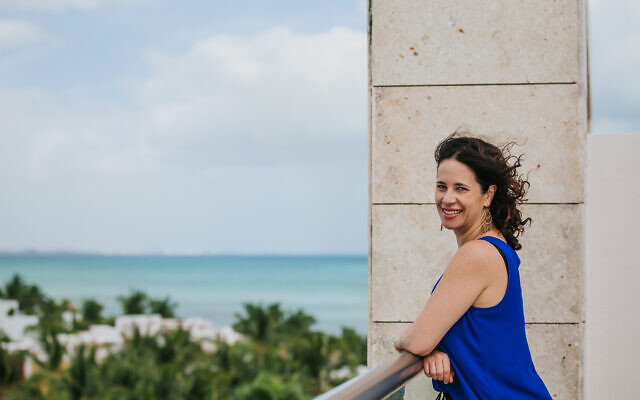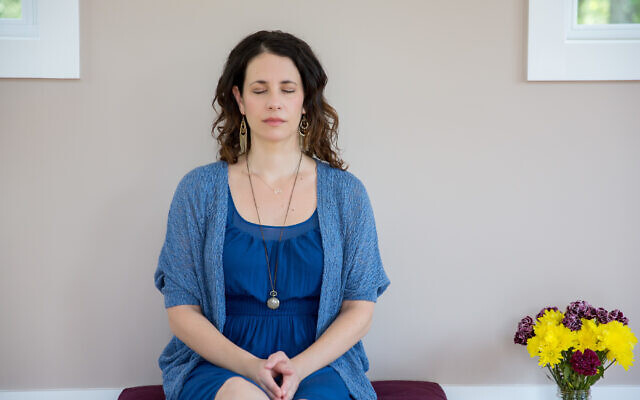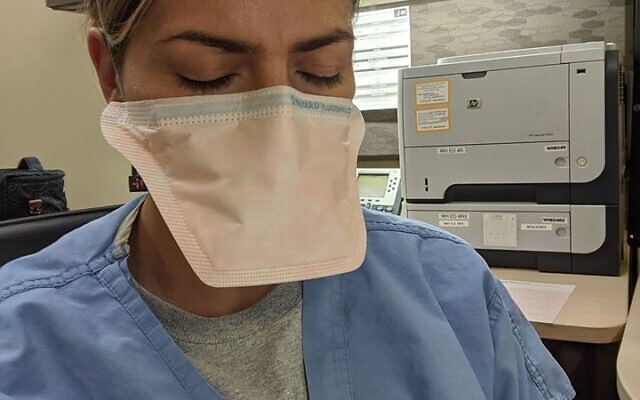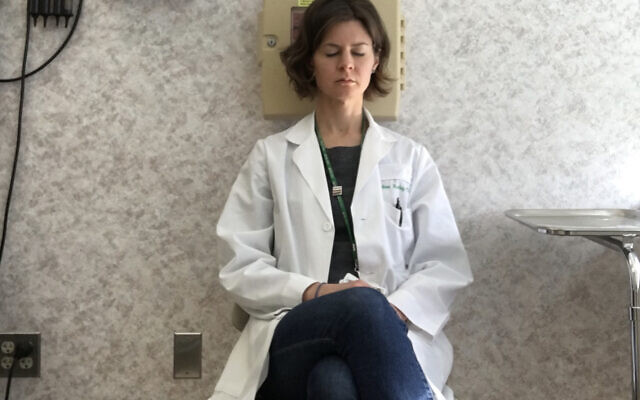Meditation for Doctors
Dr. Jill Wener helps physicians and other health professionals deal with constant stress, compounded by the COVID epidemic.
In principle, physicians have the knowledge and skills to stay healthy. But while they care for and save other people, their own physical and mental well-being is often neglected. The last few months, with the COVID pandemic, have been even more stressful for the clinicians.
According to a recent Medscape survey, out of 7,500 U.S. physicians, 64 percent reported experiencing more intense burnout and 46 percent reported feeling lonelier and more isolated during the pandemic.

Long considered a taboo subject, the fragility of doctors was denied. Today, the medical community encourages physicians and other health professionals to ask for help when they need it.
Dr. Jill Wener has been focusing for four years on helping those who practice medicine fight the stress. With a medical degree from Emory University, the 43-year-old from Atlanta was able to bridge the world of Vedic, an ancient Indian practice of meditation, with the science of medicine. We met up with Wener, considered as a nationally renowned expert in physician wellness, to ask about her work and how it relates today to the pandemic. Here are her responses.
AJT: What puts physician health at risk?
Wener: Doctors witness suffering, fear, pain, tragedy and death. They are being overworked. Beside their work, they are confronted with problems of remuneration, paperwork and insurance. At hospitals, they are tired of the constant battle between the needs of patients and the administration’s main concern, which is often money. They regret neglecting their personal lives. We hear the words: exhausted, disappointed, … angry.
AJT: COVID amplifies the anxiety?
Wener: Since the very start of the epidemic, all healthcare workers have been managing this potentially lethal disease, often without being given adequate protection. Lack of PPE (personal protection equipment) has been identified as one of the main causes of burnout and stress. Today, there is another feeling: anger. If during the first weeks, people were on their balcony, banging on pans or honking their horns as a sign of solidarity, in the last two months, politics and elections have taken over. Nurses, physicians and others who put themselves and their families at risk every day, feel forgotten. This lack of recognition increases stress and tension.

AJT: Like many health providers, you were initially skeptical of spiritual practices, what convinced you?
Wener: For 10 years, I was practicing internal medicine at a busy hospital in Chicago. I threw myself, body and soul, into my career. In 2011, I experienced severe burnout. I was introduced to meditation even I was quite skeptical. But after just a few days of practice, I felt serene. I continued to work as a doctor, doing my twice-day meditation. Totally convinced by its benefits, I expand my knowledge in Vedic meditation. I didn’t know yet that I was starting a journey to another life. Five years ago, I stepped down from medicine, and moved to India for three months to complete my Vedic teacher training. I came back to Atlanta, and I created my own programs for clinicians, which I call Conscious Health Meditation and Rest Technique. I went back to the memories of my own experience: What do doctors want? Just a better quality of life. They deserve it. As great as it is, this vocation often consumes those who practice it.
AJT: What do these two methods, Conscious Health Meditation and The Rest Technique, consist of?
Wener: Unlike mindfulness, which has a lot of great benefits but requires a constant and fixed effort to focus on thoughts or your breath, we don’t use any effort, and we don’t “try” to meditate. My methods don’t require cessation of thinking; your mind can go wherever it wants. At any moment, anywhere you are, twice a day, sitting comfortably, even at your desk, with the eyes closed, you meditate. I teach to use a Sanskrit mantra to let the brain wander, until it accesses a meditative state. It is as natural as daydreaming. The rest technique is taught in 15 online modules, conscious health meditation is taught live/virtual in four sessions in four days.

AJT: Can meditation really improve intuition and clinical judgment?
Wener: Absolutely. Meditation develops full-brain functioning, and it can even change the structure of the brain, which has been demonstrated in experiments that image the brain of expert meditators such as Buddhists monks or nuns in monasteries. But already for anyone who practices regularly twice a day meditation, your pre-frontal cortex is active, so you think clearly to make good decisions. When you push stress outside your body, you can better connect with compassion and empathy, you’re less reactive and you can better assess the stakes of the situation. These meditation techniques are up to five times more restful than sleep, based on our metabolic consumption of oxygen, and improve your digestion and your immune function. Actually, they can be learned by anyone, especially if you are skeptical of meditation! Half of my clients now are not in healthcare.




comments